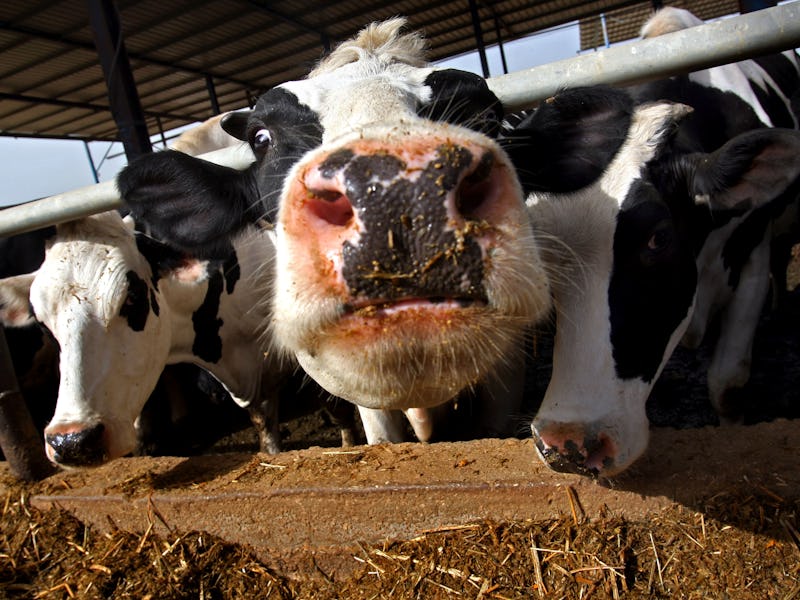The American Farm Is Poised To Become Ground Zero For Automation

The farm of tomorrow is probably going to end up looking a whole lot like the interior of an Amazon warehouse: huge, largely empty of people, and full of advanced, job-destroying robots.
Farm work is perfectly suited to robotics and automation: The work is often repetitive, involving animals that don’t require much in the way of social intelligence, on fields that are tilled in regular, geometric patterns. And it’s an industry that has had trouble keeping profit margins high, even with sizable government subsidies, meaning there’s a real incentive to phase out human workers.
Today’s farm robot workers are more involved in the work process than ever before. There are the predictable robot tractors increasing autonomy (they even start and put themselves away), personal drones equipped with GIS sensors for easy, large-scale monitoring of fields have exploded in popularity. Automated “milking parlors” for cows already existed, and they’re becoming increasingly ubiquitous in the coming years.
One robotic image that’s poised to become a symbol of the modern American farm: swarms of little weeder robots. These are distinct from the large pickers that pull veggies out of the ground, instead moving through fields and pulling out small, unwanted invaders as they begin to sprout.
But how will farmers pay for all the energy to power these robots? In short: cow poop. Methane from bovine digestion may be a powerful greenhouse gas, but it’s also highly flammable. By processing cow manure to remove a methane in a liquid form, some companies can power even high performance technology with “biomethane” fuel. It doesn’t take much to imagine an autonomous cow pie collection robot.
Persistent and affordable robotics could help farmers walk back on some more controversial practices, like the spraying of large volumes of chemicals on and around food crops. Leaving aside issues of food safety, such practices have been shown to contribute to ancillary problems like the onset of colony collapse syndrome in bees.
The farm could is poised to change how the public views robotics in daily life. When the only farmers who still wake up at dawn with calloused hands do so as some sort of artisinal brand/lifestyle choice, it will be impossible to pretend farming is “old-fashioned” work.